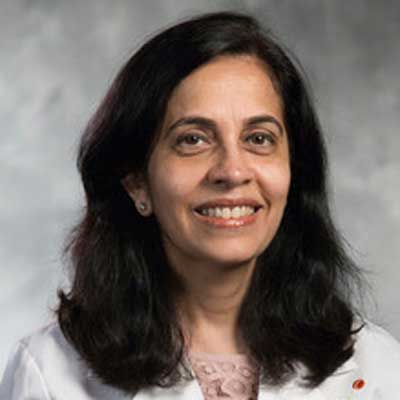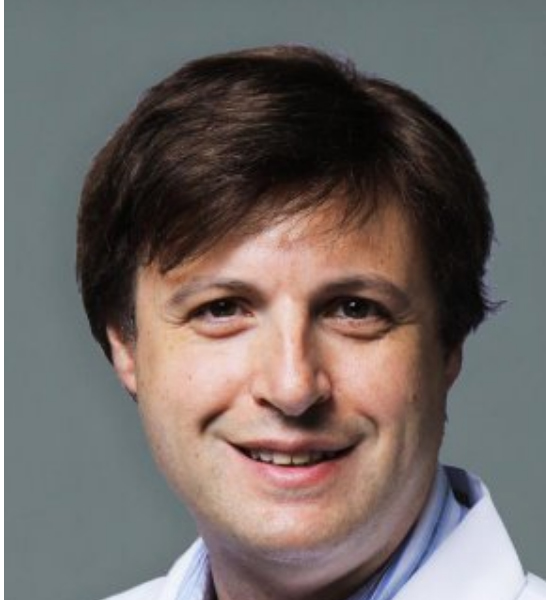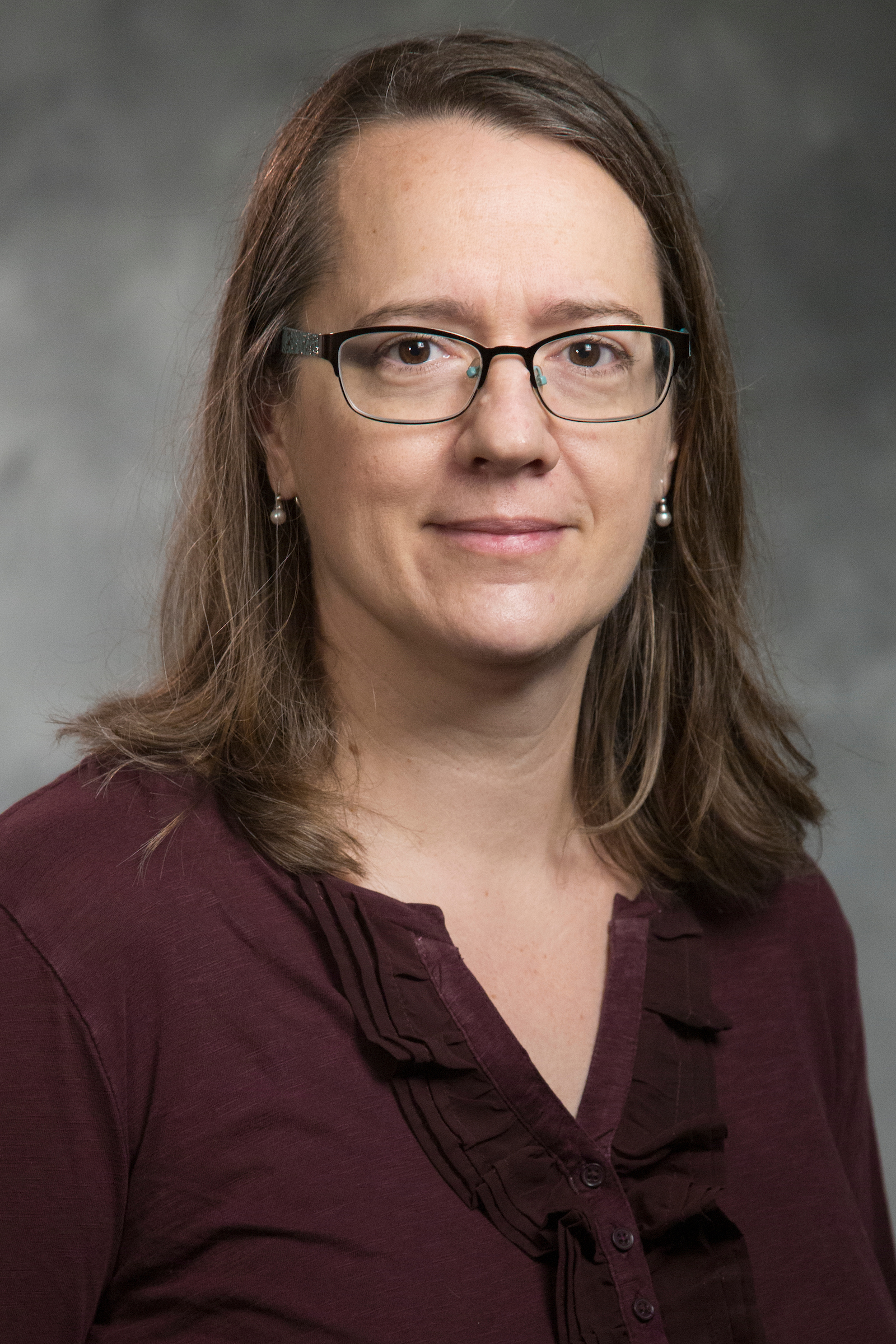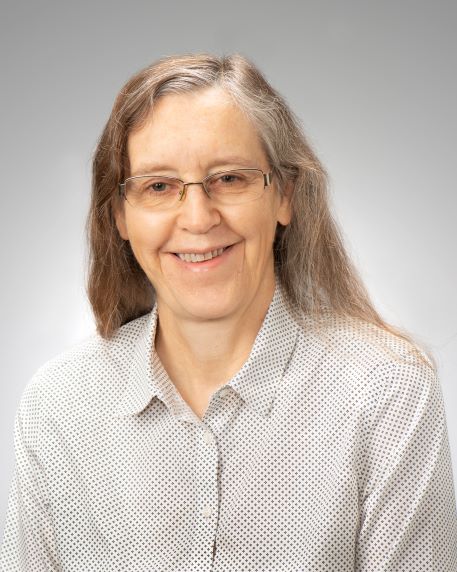Faculty
Course Director

Priya S. Kishnani, MD
C.L. and Su Chen Professor of Pediatrics
Medical Director, YT and Alice Chen Pediatrics
Genetics and Genomics Center
Division Chief, Medical Genetics
Professor of Molecular Genetics and Microbiology
Duke University Medical Center
Durham, NC
Priya S. Kishnani, MD, is Chief of the Division of Medical Genetics, Department of Pediatrics and Director of the YT and Alice Chen Center for Genomic Research. She holds certifications from the American Board of Medical Genetics and the American Board of Biochemical Genetics. Dr. Kishnani has numerous appointments at Duke University Medical Center, serving as Director of the Glycogen Storage Disease Clinical and Research Program, Director of Clinical Trials, and Director of the Metabolic Clinic.
Throughout her career, Dr. Kishnani’s clinical and research efforts have focused on enhancing the continuity of care for individuals with rare and chronic genetic conditions using a multidisciplinary team approach, with an overarching goal of translational therapeutic development. Her passion is to establish the highest quality of care and treatment by understanding the emerging natural history of individuals through investigator-initiated studies and clinical research trials with a focus on glycogen and lysosomal storage disorders. She has extensively published her work on these conditions, their long-term complications, the development of treatment strategies, and long-term outcomes of treatment in clinical trials in various research publications, textbooks, and scientific reviews.
Dr. Kishnani has served a pivotal role in the development of treatments for Pompe disease (PD)—most notably first- and second-generation enzyme replacement therapy (ERT). Based on her research and clinical experience with PD, she has identified several factors that influence medical and developmental outcomes for patients, including early initiation of ERT and the extent of muscle involvement when ERT is initiated. Dr. Kishnani’s group also has been responsible for the development and validation of a reliable blood-based assay for measurement of acid alfa glucosidase using dried blood spots and is currently working to add PD to newborn screening panels nationwide. The success she has achieved in treating PD has set the stage for treatment approaches for other neuromuscular diseases, including spinal muscular atrophy and Duchenne muscular dystrophy, and for the development of a clinical consortium of neurology experts.
Course Faculty

Ayesha Ahmad, MD
Professor of Pediatrics
Medical Director, Division of Pediatric Genetics, Metabolism and Genomic Medicine
Medical Director, Pediatric Medical Specialties Ambulatory Care Unit
Department of Pediatrics
University of Michigan
Ann Arbor, MI
Dr. Ahmad’s clinical and research interests include long-term follow-up and clinical outcomes of inborn errors of metabolism detected by newborn screening and treatment protocols for inborn errors of metabolism, including gene therapy and mRNA therapy. She has initiated and developed several new programs and clinics at Michigan Medicine dedicated to the evaluation, diagnosis, and management of patients with biochemical genetic disorders, including a multidisciplinary Centers for Medicare and Medicaid Services, Biochemical Genetics Clinic, a dedicated Lysosomal Storage Disorders Clinic, and the Newborn Screening Program for Pompe Disease and Mucopolysaccharidosis Type I (MPS1). She has worked closely with the Michigan Department of Health and Human Services (MDHHS) in bringing expanded newborn screening to Michigan, including the addition of Pompe disease to Michigan’s newborn screening panel. She remains actively involved as a member of the MDHHS Newborn Screening Technical Advisory Committee and the Metabolic Quality Improvement Committee and as the Co-Chair of the Pompe and MPS1 Advisory Committee in Michigan.

Kenneth I. Berger, MD
Professor, Departments of Medicine, Neuroscience and Physiology
NYU Grossman School of Medicine
New York, NY
Dr. Berger specializes in pulmonary, critical care, and internal medicine. He has particular expertise in pulmonary physiology and the evaluation of patients with acute and chronic respiratory disease in the outpatient clinic and of patients with respiratory failure in the intensive care unit. His primary research interests have focused on ventilatory control and respiratory-renal interaction, CO2 homeostasis in sleep apnea, integrated cardiopulmonary function in obesity, and distal airway physiology and biology.
Dr. Berger has also been involved in clinical studies of patients with a variety of lysosomal storage diseases, including Pompe disease (PD). He is a member of the North American and International Pompe Disease Registry Board of Advisors. He has co-authored a number of peer-reviewed publications on the diagnosis and treatment of PD.

Tracy Boggs, PT, NCS
Board-Certified Specialist in Neurologic Physical Therapy
Department of Physical Therapy and Occupational Therapy
Duke University Health System
Durham, NC

Laura Case, PhD, PT, DPT, MS, PCS, C/NDT
Associate Professor in Orthopedic Surgery
Duke University School of Medicine
Durham, NC
Laura Case, PhD, PT, DPT, MS, PCS, C/NDT, is a board-certified clinical specialist in pediatric physical therapy. She has dedicated her career to teaching, research in childhood-onset neuromusculoskeletal disorders, and the lifelong treatment of people with childhood-onset neurologic and neuromuscular disorders such as cerebral palsy, traumatic brain injury, Duchenne muscular dystrophy, spinal muscular atrophy, Pompe disease, myelodysplasia, juvenile rheumatoid arthritis, and brachial plexus injury.
She has been involved in numerous clinical trials for the treatment of disorders including Pompe disease and other metabolic disorders, cerebral palsy, Duchenne muscular dystrophy, and spinal muscular atrophy. Dr. Case has participated in the development of international guidelines for the management of Duchenne muscular dystrophy, Pompe disease, and other glycogen storage diseases.
She teaches and consults internationally, has worked on a number of Center for Disease Control and Prevention task forces, and has served on numerous committees.

Paula R. Clemens, MD
Professor of Neurology, Microbiology and Molecular Genetic
Human Genetics and Pediatrics
Pittsburg, PA
She has been a member of the Cooperative International Neuromuscular Research Group and a site principal investigator since its founding in 2000. She has been Medical Director since 2010.

David Kronn, MD, FACMG
Director, Advanced Medical Genetics, APS and Section Chief, Medical Genetics,
Westchester Medical Center
Associate Professor of Pathology and Pediatrics, New York Medical College
New York, NY